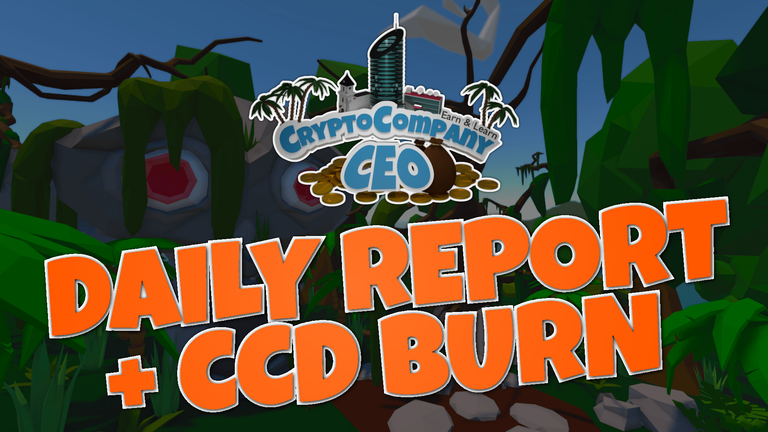Infancia y salud mental /Childhood and Mental Health (Iniciativa) [Esp-Eng]
Por estos días nuestra comunidad dedica sus publicaciones a la celebración del Día Mundial de la Salud Mental. Un lema nos une: Juntos fortalecemos la salud mental de todos (@Holos&Lotus). El llamado es a pensar en el bien común desde el cuidado propio, promoviendo la salud mental en nuestros grupos sociales y las comunidades en las que interactuamos.

Algunos post han tocado el tema desde la infancia, esa etapa que José Martí llamó la edad de oro y cuya calidad determina de manera irrefutable que luego los niños se conviertan en adultos funcionales, sanos e íntegros. Sus análisis me animan a aportar mi granito de arena desde la experiencia y la reflexión.

Primeramente, debo aclarar que para mí la familia es la máxima responsable del cuidado y la educación de los niños. La escuela instruye, contribuye a la formación; pero donde se forjan los valores y el niño recibe el núcleo duro de la educación es en el hogar. Luego, la escuela deviene un espejo de lo que ocurre en la casa. Ello explica el caso que nos presenta @graciadegenios (un post que recomiendo no dejar de leer, por la penetrante sensibilidad y la empatía con que la autora presenta el asunto), sobre un niño que es repelido por los maestros de la escuela donde ella trabaja, al presentar problemas en su comportamiento.
Para los que aún creen que se le puede dejar la magna tarea educativa a la escuela como institución, piensen en estos ejemplos. Es verdad que existen maestros de vocación que ayudan a niños en situaciones de vulnerabilidad en sus hogares; pero esos angelitos son víctimas, cargan sus heridas, porque falló lo único que nunca debió haberles fallado. Por eso me sumo a la perspectiva de @ancnoticias, quien apuesta por educar a los niños desde las primeras etapas a través del cuidado de su salud mental, lo cual comienza con el ejemplo de los adultos.


Lamento lo que les voy a compartir ahora pero no puedo dejar de pensar en ello. Mi hijo es hiperactivo, no solo por la inquietud, sino porque casi siempre su cerebro va unos pasos por delante. Esto provoca que todo lo haga a una velocidad tan rápida que bien puede suceder lea de manera incorrecta la orden de un ejercicio o borre alguna palabra además de la que quería, en fin. Su maestra no lo entiende, en ocasiones se enfada y le arranca la hoja que no quedó perfecta en el cuaderno o lo lastima de palabras delante de otros niños. La parte que me resulta más terrible es cuando ella se ausenta del aula y algunos de esos niños le dan quejas, aún conociendo sus modos pocos convencionales. Para mí, esa falta de empatía tiene sus raíces en la familia.
Para ayudarlo le he ido sugiriendo algunos compañeritos de aula con los que podría tener una amistad. En ciertos casos ha funcionado muy bien. También conversamos sobre su modo de relacionarse y el cuidado que debe tener al interactuar con las personas.

Otras acciones han sido propiciarle espacios de crecimiento espiritual, en los que ha podido compartir con otros niños. Ha asistido a actividades literarias, galerías, fiestas infantiles, parques, museos, teatros… a todo cuanto puede elevarle el espíritu y fortalecerlo intelectualmente.



La lectura también ha sido importante porque en los libros infantiles se presentan múltiples situaciones en las que puede reconocerse e, incluso, aprender sobre diferentes salidas y respuestas.

En resumen, a los padres la vida nos reta diariamente a cuidar la salud mental de nuestros hijos. Creo que compartir tiempo de calidad con ellos y crear modos sanos de comunicación es el paso más importante. Disfruto mucho hablarle a mi hijo en claves que solo él y yo comprendemos. El camino puede ser escabroso, pero un vínculo sólido, un hogar estable y una educación coherente los considero esenciales para proteger la salud mental de los infantes.
Gracias por visitar mi blog. 💜

Estimada Comunidad, declaro que escribí este post sin ayuda de la IA.
Las imágenes me pertenecen y los banners fueron creados en Canva, por @yuraimatc.

These days, our community is dedicating its posts to the celebration of World Mental Health Day. A motto unites us: Together we strengthen the mental health of all (@Holos&Lotus). The call is to think about the common good through self-care, promoting mental health in our social groups and the communities in which we interact.

Some posts have touched on the topic from childhood, that stage that José Martí called the golden age and whose quality irrefutably determines whether children later become functional, healthy, and whole adults. Their analyses encourage me to contribute my grain of sand based on experience and reflection.

First, I must clarify that for me, the family is ultimately responsible for the care and education of children. School instructs and contributes to development; but it is at home that values are forged and children receive the core of their education. Then, school becomes a mirror of what happens at home. This explains the case presented by @graciadegenios (a post I recommend you read for the penetrating sensitivity and empathy with which the author presents the issue), about a boy who is rejected by the teachers at the school where she works for having behavioral problems.
For those who still believe that the great task of education can be left to the school as an institution, consider these examples. It's true that there are dedicated teachers who help children in vulnerable situations at home; but these little angels are victims, carrying their wounds because the one thing that should never have failed them failed. That's why I share the perspective of @ancnoticias, who advocates for educating children from the earliest stages through caring for their mental health, which begins with the example of adults.


I regret what I'm about to share with you now, but I can't stop thinking about it. My son is hyperactive, not only because he's restless, but because his brain is almost always a few steps ahead. This causes him to do everything at such a rapid speed that he may misread the order of an exercise or erase a word other than the one he intended, etc. His teacher doesn't understand him; sometimes she gets angry and tears out a piece of paper that wasn't perfectly written in his notebook or insults him with words in front of other children. The most terrifying part for me is when she's absent from class and some of the children complain to him, even though they know his unconventional ways. For me, this lack of empathy has its roots in the family.
To help him, I've been suggesting some classmates he could befriend. In some cases, it's worked very well. We also talk about his way of relating to others and the care he needs to take when interacting with people.

Other actions have included providing him with spaces for spiritual growth, where he's been able to share with other children. He has attended literary activities, galleries, children's parties, parks, museums, theaters—anything that can uplift his spirit and strengthen him intellectually.



Reading has also been important because children's books present multiple situations in which children can identify and even learn about different ways out and responses.

In short, life challenges us as parents daily to take care of our children's mental health. I believe that spending quality time with them and creating healthy modes of communication is the most important step. I truly enjoy speaking to my son in ways only he and I understand. The road can be bumpy, but I consider a strong bond, a stable home, and a consistent upbringing to be essential for protecting children's mental health.
Thank you for visiting my blog.💜

Dear Community, I declare that I wrote this post without help from AI.
The images belong to me and the banners were created in Canva, by @yuraimatc.
 |  |
|---|
 |  |
|---|
 |  |
|---|
 |  |
|---|
 |  |
|---|
 |  |
|---|
 |  |
|---|

Que belleza de niños , cuánta ternura y sinceridad en esos abrazos medicinales.
Gracias, mi Ele!! 💜💜💜
Congratulations @liannetchs! You have completed the following achievement on the Hive blockchain And have been rewarded with New badge(s)
Your next target is to reach 50 posts.
You can view your badges on your board and compare yourself to others in the Ranking
If you no longer want to receive notifications, reply to this comment with the word
STOPexcelente post
En mi infancia hubo una profesora que me maltrataba también, aún en mi adultez la recuerdo a veces con un poco de resentimiento. Es importante desarrollar la empatía desde la infancia y la comprensión hacia los demás @liannetchs 🤗, excelente post, saludos.
Excelente publicación y muy certera además, la formación de nuestros niños es un alto porcentaje de responsabilidad del núcleo familiar Y en este tema de la salud mental como en todos es crucial la manera y la responsabilidad con la que tomamos su formación. Exitos y Bendiciones.
Gracias, @amymari!! 💜💜
Muy interesantes todas las atenciones que brinda a su hijo, el papel de la familia es primordial. Saludos